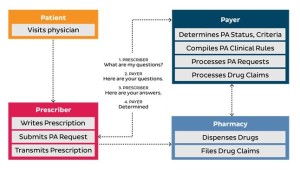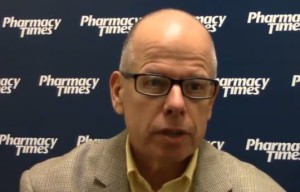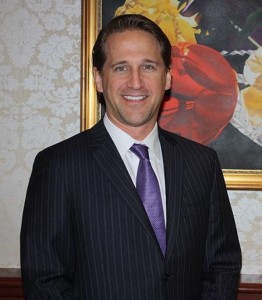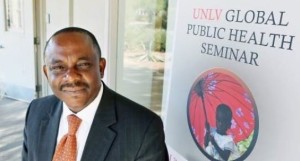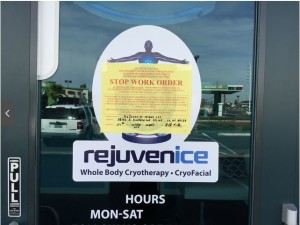- The Current State of Electronic Prior Authorization in the US (ajmc.com)National adoption Scorecard Electronic Prior Authorization (ePA) (epascorecard.covermymeds.com)
A majority of pharmacies have publicly announced that they are committed to implementing an electronic prior authorization solution that sends prior authorization requests electronically to the prescriber…70% of EHR systems…are committed to ePA. Eighty-seven percent of payers…are committed to ePA…CVS/pharmacy is the last major chain not yet committed to an ePA…many independent pharmacies have access to ePA functionality through pharmacy systems, most of which have live, integrated ePA capabilities…Prior authorization legislation has been considered, and in some states is in effect…Currently, 23 states have passed legislation pertaining to PA, and 4 additional states have pending legislation. The legislation seeks to make the PA submission process faster and easier for providers to prevent the delay of patient treatment…there is no federal direction on PA, so each state is on its own with respect to creating and enacting PA legislation...
- Benefits of E-Prescribing Over Traditional Prescriptions (pharmacytimes.com)
Ken Whittemore Jr, Surescript's senior vice president of professional and regulatory affairs, discusses some of the ways in which e-prescribing trumps traditional prescriptions. (video)
- Leapfrog: Hospital improvement ‘sluggish’ despite some stars (modernhealthcare.com)2015 Leapfrog Hospital Survey Results Now Available (leapfroggroup.org)
The Leapfrog Group has released the second round of its bi-annual hospital safety scores, which show “sluggish” improvement in patient safety among the nation's hospitals…Despite some improvement…hospitals are performing worse in critical areas like the rate of foreign objects left in a patient after surgery and other critical measures that cause hospital acquired conditions. But 133 hospitals, about 5% of all graded facilities, have earned an A, the highest grade, in every score since spring 2012.
- 15 Medical Conditions in Need of New Medications (pharmacytimes.com)
Americans want more medications to treat obesity and depression, among other conditions…
Obesity, which affects more than one-third of Americans, ranked highest among US physicians who were asked which conditions they wished had more pharmacological remedies…More than 6000 US physicians participated in the "PatientsMap" survey, which was conducted by the Social Survey Research Information Co, M3 Inc, and M3 Global Research and took place between December 2013 and February 2014…According to the US survey results, the following are the 15 conditions that most warrant new medications, with some information on how pharmacists can help these patients:- Obesity (27.4%)
- Depression (24.7%)
- Diabetes (22.1%)
- Dementia (20.5%)
- Migraine (19.5%)
- Anxiety (18.8%)
- Hypertension (17.8%)
- Chronic pulmonary obstructive disorder (16%)
- Lower back pain (15.7%)
- Dyslipidemia (15.6%)
- Osteoarthritis (15.1%)
- Fibromyalgia (14.8%)
- Headache (14.8%)
- Gastroesophageal reflux disease/nonerosive reflux disease (14.3%)
- Diabetic neuropathy (13.9%)
- MD Labs solution could change, enhance pharmacists’ role (drugstorenews.com)
MD Labs (Reno based) is currently making the rounds to retail pharmacy operators with a new service solution that pharmacists are uniquely qualified to deliver. And it’s a solution that will significantly enhance the role pharmacists already play between providers and patients…That new service is pharmacogenetics, which uses the DNA from a cheek swab sample to help determine the best course of pharmacotherapy for an individual patient across 200 medicines — a number that’s growing…The new RxIGHT Pharmacogenetic Test...can eliminate trial-and-error prescribing of medicine, in which a doctor prescribes a medicine and measures the impact of that course of therapy after the fact, rather than quickly identifying the most appropriate course of therapy…It drives adherence and — perhaps most importantly — improves outcomes.
- Technology leads hospital expenditures (healthcareitnews.com)
Hospitals are continuing to make big investments in technology as they recognize the need to effectively manage population health, according to C-suite execs polled for Premier's Fall 2015 Economic Outlook survey…More than 64 percent of respondents reported an increase to capital budgets this year, reflecting the need for investments in advanced technology to meet value-based care goals…39 percent of these respondents increased their budgets by at least 10 percent…The biggest investment for hospital expenditures is on health information technology, according to 72.2 percent of respondents to the survey…"Investments in HIT, data analytics and modern clinical infrastructure are foundational for providers to seamlessly deliver population health services across their inpatient, outpatient and alternative care sites,"…
- UNLV professor uses Nigerian churches to battle HIV spread (reviewjournal.com)
A promising new method for battling the spread of HIV in Africa was inspired by an unexpected source 8,000 miles away: a baby shower at the home of a Las Vegas professor…Dr. Echezona Ezeanolue — who leads health research efforts at the University of Nevada, Las Vegas — is earning praise from medical experts nationwide for coming up with a more effective way to convince pregnant women in his native Nigeria to be tested for the disease…Ezeanolue had long sought to find a way to boost the country's testing rate when inspiration hit in 2011 after his wife threw a party to celebrate the upcoming birth of their fourth child…"My wife said to me, why don't we use baby showers?"…It was a way to remove some of the barriers…To convince women to get tested, Ezeanolue and his team of 10 fellow researchers organized parties led by religious leaders at worship sites in Nigeria, a country with high church attendance rates. Faith-based organizations are highly influential across Africa, and they play a critical role in the fight against AIDS...
- A Tech Revolution Is Quietly Taking Place In Healthcare (realclearmarkets.com)
While policymakers, and the country, struggle over challenges facing and created by the Affordable Care Act, real healthcare reform is happening almost completely outside of that loop, driven by technology and innovators, many of whom are from outside the healthcare industry…Health IT or Digital Health-the generic terms used to describe these disruptions that include the use of mobile devices and telemedicine, among other changes-are breaking almost every standard healthcare paradigm. It's that "creative destruction" that economists frequently refer to, transforming how care is delivered, received, tracked, paid for and even understood…And unlike traditional healthcare, where the more money you have the more healthcare your get, the health IT revolution largely ignores those barriers. That's because the poor have mobile devices in almost similar numbers to the rich.
- Surescripts taps Kno2 platform for clinical info exchange (drugstorenews.com)
Kno2…announced that Surescripts had selected the company’s platform to connect health technology vendors and their users, allowing them to exchange information through Surescripts’ Clinical Direct Messaging…Kno2's platform makes any documents interoperable, allowing clinical documents move between different health care professionals and vendors. Additionally, the company makes APIs available to vendors who want to connect to Surescripts’ network, which can reduce costs associated with implementing direct messaging and getting Electronic Health Record certification. Kno2 also streamlines the process of verifying identities for providers, which takes that responsibility off of vendors.
- Nevada agencies say cryotherapy death is not their investigation (reviewjournal.com)Las Vegas cryotherapy center worker dies at work (reviewjournal.com)Family says woman died in cryotherapy chamber in 'seconds' (reviewjournal.com)Woman complained about cryochamber malfunction days before death (ktnv.com)
Questions about a cryotherapy worker who died last week at her south Las Vegas Valley job lingered…but it wasn't clear who was going to find the answers…Multiple agencies told the Review-Journal they were not responsible for any investigations and that cryotherapy businesses are not regulated like medical clinics or salons… Ake-Salvacion died while using a cryotherapy machine, according to her family and the Nevada Occupational Safety and Health Administration…OSHA is not investigating…The agency responded when the body was found but won't press on…. the business is not regulated by any medical board…and their procedures and equipment are not monitored by the Food and Drug Administration… Nevada regulations do not cover the use of cryotherapy for cosmetic procedures, according to the executive director of the cosmetology board…Neither the Nevada Department of Health and Human Services nor the Southern Nevada Health District regulate such businesses… Rejuvenice's website says it provides “medical therapy” with full-body devices at negative 240 degrees.

